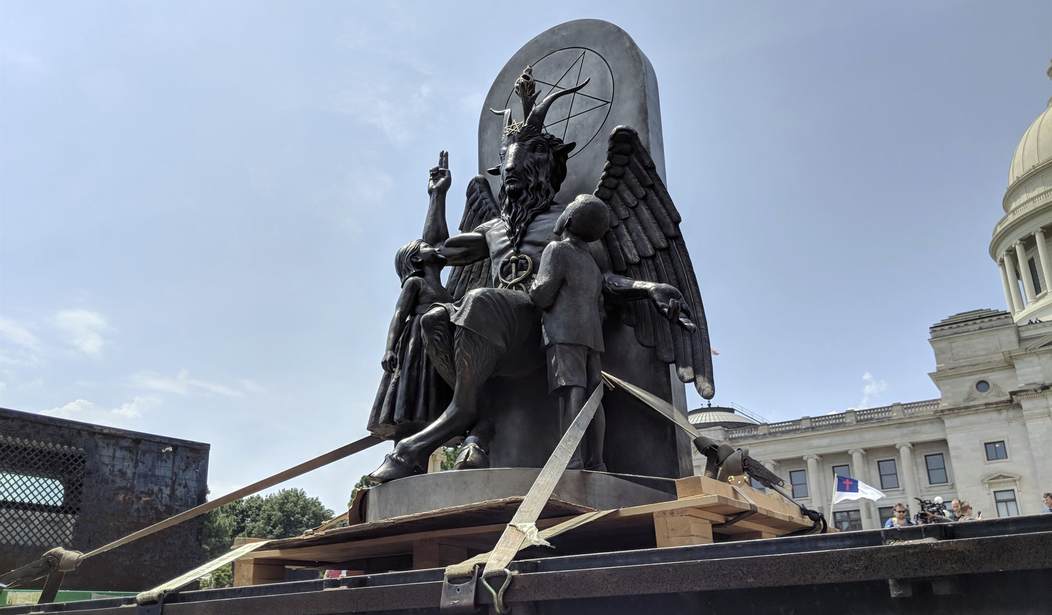If you want a Gordian Knot to untie during your idle hours, try defining religion. Most people and common dictionaries define religion as a belief system that involves a supreme deity and veneration of it. The Cambridge University dictionary defines religion as “The belief in and worship of a god or gods, or any such system of belief and
These definitions are satisfactory in a practical sense but less so in a legal sense. Not even the Supreme Court of the United States can define religion, and rightly so. According to the Cornell Law Review, “Although the Supreme Court has discussed the concept of ‘religion’ in several cases, it has not provided a specific definition to govern cases arising under the religion clauses.” (Italics added). Defining something necessarily excludes something else, so courts are not keen on “prohibiting the free exercise,” of any practice that might be excluded from any legal definition.
Which brings us to the point of this week’s column namely, a bill in the Florida state house allowing chaplains in public schools. The legislation is intended to “provide support, services, and programs to students,” in an effort to meet a growing demand for mental health counseling, and it has the full support of the Satanic Temple “Our ministers look forward to participating in opportunities to do good in the community, including the opportunities created by this bill,” wrote Satanic Temple Director of Ministry Penemue Grigori to the Tallahassee Democrat.
It’s a clever political ploy. By inciting concern among parents wary of promoting Satanism to school children, the Satanic Temple creates the presumed necessity of excluding all other faiths from any school chaplaincy program - an all-or-nothing proposition - claiming protection under the First Amendment’s Establishment Clause. They may be Satanic but they’re not stupid.
Recommended
But whether the Satanic Temple constitutes a religion is a legitimate question. Under broadly accepted definitions, it isn’t. In answering the FAQ “Do you worship Satan?” the group’s website is unequivocal. “No, nor do we believe in the existence of Satan or the supernatural.” So much for the notion of belief in, or worship of, a supreme being.
This begs the question of what the Satanic Temple does believe. Its followers “embrace rational inquiry removed from supernaturalism and archaic tradition-based superstitions,” and further instructs adherents to “actively work to hone critical thinking and exercise reasonable agnosticism in all things.” These are widely held ideals among scientists, but it’s not religion.
The Temple supports this conclusion by saying, “Our beliefs must be malleable to the best current scientific understandings of the material world.” These statements in support of the Satanic Temple’s claim of being a religion suggest that molecular biology, quantum mechanics and most any scientific pursuit could claim constitutionally protected status as a religion.
Academics have something to say about religion. Anthropologist Edward Burnett Tylor, in an attempt to define it, established “what Tylor called a ‘minimal definition’ of religion, and he proposed that the key characteristic was ‘belief in spiritual beings,’” according to the Stanford University Encyclopedia of Philosophy. The Satanic Temple fails Tylor’s minimal definition test.
American philosopher and psychologist William James defined religion as “feelings, acts and experiences of individual men in their solitude, so far as they apprehend themselves to stand in relation to what-ever they may consider divine.” The Satanic Temple doesn’t consider Satan divine and eschews the supernatural, so it fails this test too.
Typically, courts spend less time defining religion and more time examining actions springing from beliefs claimed to be religious. Judicial decisions involving religious exemptions to law provide guidance. It may be a Muslim organization not wishing to hire Presbyterians because Presbyterians don’t know a lot about Islam, or an Amish family arguing against compulsory education above a certain grade level. Both examples involve arguing for deeply held religious beliefs prompting actions and reactions, a standard that should apply to the Satanic Temple.
The Temple’s Seven Tenets include, among other things, acting with compassion and empathy; struggling for justice; respecting the freedoms of others; conforming to science; and accepting the fallibility of man. Everyone who lives on my block believes those things but that doesn’t make them Satanists any more than it makes their homes churches or their ideas a religion. The Satanic Temple is not a religion; it’s a club for people who wish to appear rebellious.
The goal of the Satanic Temple is to provide a pretext for keeping all religions out of Florida schools - if their chaplains are not allowed, neither are those of Judaism, Christianity, Buddhism or any other religion. They have thrown down the gauntlet. Let’s see if anyone picks it up and returns the favor in court.

























Join the conversation as a VIP Member